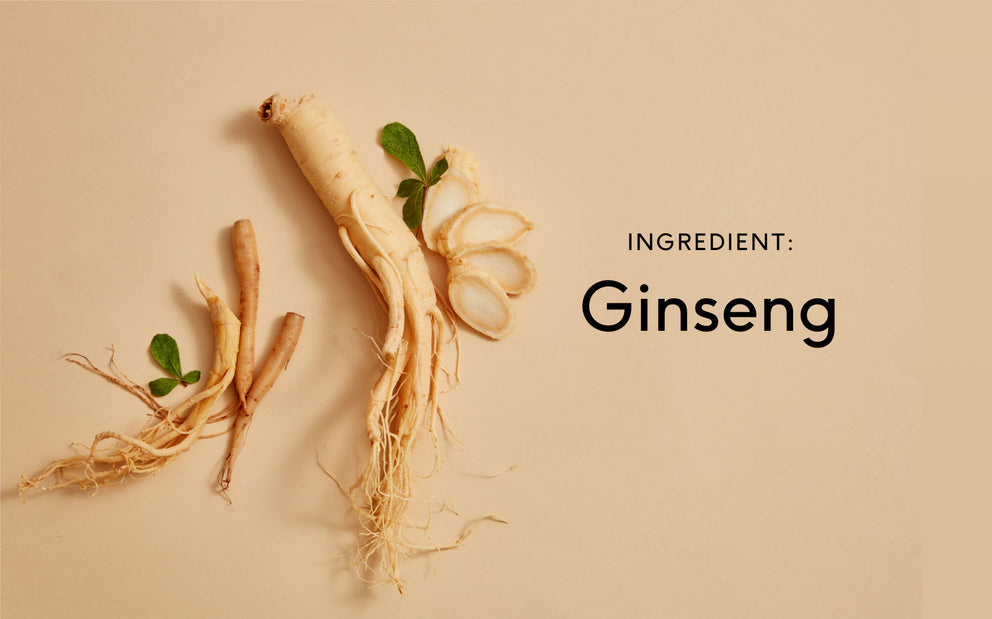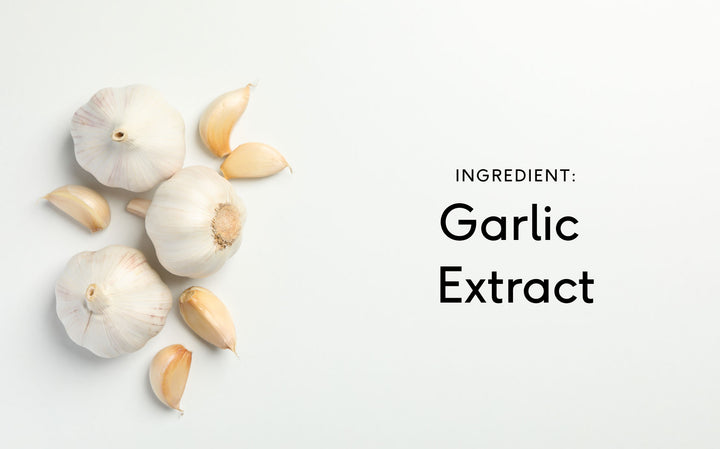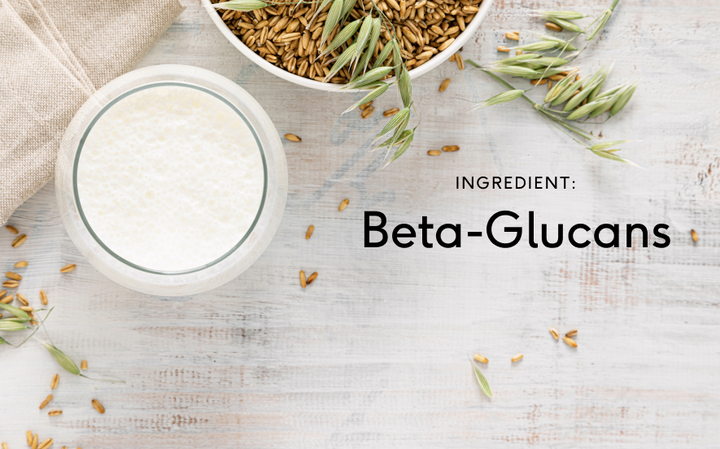What is Ginseng: Benefits, Risk and How to Use [2025 Nutritionist Reviewed]
Sarah is a Clinical Nutritionist who holds a degree in Nutritional Medicine. She focuses on the gut-brain connection and its influence on mental health and brain-based disorders.
Sarah is a Clinical Nutritionist who holds a degree in Nutritional Medicine. She focuses on the gut-brain connection and its influence on mental health and brain-based disorders.
Table of contents

| Ingredient name | Panax Ginseng |
| Ingredient also known as |
‘Man root.’ Ginseng contains two major active components called Ginsenosides and Gintonin present in Ginseng Root 1
|
| Available Ginseng forms |
Ginseng is a complementary medicine product classified into two categories – Fresh White, and Red Ginseng, depending on the processing. It is available as tea, dried powder, or capsules2 |
| Bioavailability |
Oral bioavailability is low however, fermented Red Ginseng has the best bioavailability3 |
| Water-soluble or fat-soluble |
Some substances in Ginseng root are water-soluble and some are fat-soluble. Gintonin is water-soluble and is absorbed into the tissues quickly with high bioavailability. Ginsenosides are mostly fat-soluble until they are transformed by the gut bacteria, then they become water-soluble2 |
| Health benefits associated with Ginseng |
Both American Ginseng (Panax quinquefolius, L.) and Asian Ginseng (P. Ginseng) have been shown in clinical trials to boost energy, reduce stress, support immune function, restore vitality, help manage blood sugar levels in diabetes and treat erectile dysfunction in men 4 |
| Year Ginseng was discovered | Ginseng was discovered over 5000 years ago in the mountains of Manchuria, China in 196AD5 |
| Ginseng is mostly used in |
Traditional herbal medicine. The most commonly used type of Ginseng is Asian Ginseng root 6 |
| Recommended dose |
Many published research studies have used a standardized Panax Ginseng extract in a dosage of 200 mg per day7 |
| Daily reference intake |
N/A |
| Does the human body produce Ginseng? |
Not specifically, however, there is the conversion of the Ginsenosides from Ginseng into their metabolites by enzymes and intestinal bacteria in the body 8 |
| The half life of Ginseng |
Up to 24 hours8 |
| Signs of Ginseng deficiency |
It is not an essential nutrient so there is no known deficiency |
1. Overview: What is Ginseng?
Ginseng is an herb that is rich in antioxidants. Ginsenosides which is a product of Ginseng has been shown to be beneficial for immunity with antioxidant and anti-inflammatory effects. It has been used in traditional Chinese medicines for thousands of years to treat and prevent the onset of chronic diseases9, 10.
2. What forms of Ginseng are there?
In total there are thirteen different species of Ginseng and they are classified under the name ‘Panax’ which comes from the Greek word ‘panakeia’ which means ‘all healing.’ There are five main types of Ginseng:
- American -Panax Quinquefolius
- Korean or Asian - Panax Ginseng
- Vietnamese Ginseng - Panax Vietnamensis
- Japanese Ginseng - Panax Japonicus
- Pseudoginseng - Panax Notoginseng
All types of Ginseng are found naturally in the wild. The root is the part that holds the most medicinal properties and which is used in herbal medicines11.
3. What is Ginseng made from?
The medicinal part of Ginseng is used in supplements and is made from the dried main and lateral root and root hairs12.
4. What does Ginseng do?
Some animal studies on the use of Ginseng have shown it improves energy levels, stamina and may also increase the activity of the immune system 12.
Ginseng also has the potential to treat brain diseases such as Alzheimer’s. In one study, patients with moderate-to-severe Alzheimer’s disease were treated with 4.5 g/day of Ginseng and showed significant improvement in cognitive functioning after 24 weeks of supplementation 20
Ginseng may also help with diabetic control. Human trials exploring the efficacy of Ginseng intervention in diabetes have found Ginseng can significantly lower blood sugar levels21.
The gut bacteria metabolise Ginsenosides; they can also form secondary ginsenosides such as Compound K in a more bioavailable and soluble form3; these metabolites provide many health supportive benefits8.
There are other possible benefits that have not been definitively proven such as improved adrenal gland and reproductive gland performance, increased recovery time from illness, reduction in chronic fatigue, and widening of blood vessels. White Ginseng has been shown to help lower high blood pressure4,6,12, 26.
5. What is the function of Ginseng supplements?
Ginseng root is used in Eastern Asia (Korea, China, Japan). It has generally been used for the treatment of general weakness, cold extremities, lack of appetite, and weakness after a long illness. It is also been used to alleviate anxiety, heart palpitations, insomnia, impotence in men and infertility in women, and cardiac insufficiency13.
6. What is Ginseng used for?
Panax Ginseng is most commonly used as a herbal supplement in alternative medicine to help reduce tiredness, increase energy levels and well-being and help with sexual dysfunction13.
Siberian Ginseng is traditionally used to prevent colds and flu and for longevity, and vitality. It is widely used in Russia as an "adaptogen” which is a substance that helps the body better cope with either mental or physical stress25.
The effects of Korean Red Ginseng extract in particular include anti-inflammatory properties and can help reduce oxidative stress, and help treat multiple metabolic conditions such as diabetes and hyperlipidemia27.
The Ginkgo Biloba (one of the oldest living tree species) and Ginseng combined, was found to significantly improve memory28.
7. Is Ginseng effective?
Although its efficacy to treat illness has not been proven absolutely, there have been many clinical studies that have shown the benefits of Ginseng as an anti-stress agent, and its potential to treat medical conditions such as anxiety, depression, and post-traumatic stress disorder15
From a systematic review of randomized controlled trials conducted in 2011, strong evidence was found to show a positive effect of Ginseng on blood glucose metabolism, psychomotor function, and pulmonary disease22, 23. Ginseng has also been shown to be effective in improving memory and may have neuroprotective effects. Ginseng is an effective antioxidant and can improve cardiovascular health15.
Ginsan is a polysaccharide produced from Korean Panax Ginseng and has been shown to function as an immunomodulator a placebo-controlled trial in 2014 showed it to be safe and effective at enhancing the immune system29.
8. How to take Ginseng?
Ginseng is usually taken in the form of dried herbs in tea or dietary supplements in the form of powder, or capsules12.
9. How long does it take for Ginseng to work?
How much to take and how long to take it can vary depending upon what it's being used for. Always talk with your healthcare provider before using it.
10. How long does it take for your body to absorb Ginseng?
Generally if taken orally for about two hours2, 8. It usually takes about 24 hours to fully absorb Ginseng2, 5.
11. How much Ginseng do I need to take to feel the benefits?
- Ginseng for Anti-stress treatment
- Ginseng for Neuroprotective effects
- Ginseng for Cardiovascular protective effects
It has been suggested to take Ginseng in doses of 1 to 2 grams of root or 200-400mg of extract, three or four times per day. It should only be used for the short term around three to four weeks to see if the effects are beneficial for you. Long-term usage is not recommended12, 14. It is always better to seek medical advice from a healthcare professional before taking dietary supplements. Discuss with your doctor or healthcare provider if you plan on taking Ginseng as it can have the potential for drug interactions such as with Warfarin and Aspirin. It should also not be taken by pregnant or breastfeeding women or by children under 12 years4, 14.
12. What are the side effects of Ginseng?
Ginseng has potential side effects. The effects of Panax Ginseng include difficulty sleeping which is the most common side effect. Less common effects include headache, agitation, upset stomach, menstrual problems (such as abnormal vaginal bleeding), breast pain, and dizziness. An increase or decrease in blood pressure can also occur16, 24. However, these symptoms are usually mild to moderate and go away within a few days16.
13. What are the signs of Ginseng deficiency?
There is no known Ginseng deficiency as it is not an essential nutrient for the body and there is no recommended daily intake value. In most clinical studies a dose of 200mg was used2, 16.
14. What are the risks associated and warnings with taking Ginseng?
Ginseng has low toxicity and Ginseng overdose and adverse effects are rare. If too much is ingested it can cause symptoms such as fidgeting, muscle tremors, and irritability2.
Other possible reactions include nervousness and insomnia and long-term use or high doses may lead to headaches, dizziness, and stomach upset.
Women who use Ginseng regularly may experience menstrual changes. There have also been reports of allergic reactions to Ginseng19.
15. What is a good Ginseng supplement?
There is a very wide range of the amount of Ginsenosides in Ginseng supplements so it is important to check the product information carefully. Korean Ginseng and American Ginseng seem to be the most popular and effective products available as shown by customer reviews online17, 18.
16. Where can I buy Ginseng?
There are various online retailers and high street stores that stock Ginseng supplements such as health food stores and online retailers such as Feel.
17. Interactions and contraindications when taking Ginseng
Caffeine and Ginseng may cause arrhythmia and hypertension. It can also interact with diuretics such as Furosemide as well as with some antidepressants, insulin, diabetes medications, anticoagulants, and immunosuppressants. Lab tests have shown that it may be damaging to the embryo and foetus, so it's not recommended for use during pregnancy. Also, Ginseng can be toxic for children and babies.
As Ginseng has an effect on the immune system it may not be safe for people with rheumatoid arthritis, lupus, multiple sclerosis, and other auto-immune diseases. Additionally, it may interfere with blood clotting medications4, 7, 16.
References
1 https://www.webmd.com/diet/health-benefits-ginseng
2 https://wearefeel.com/blogs/learn/what-is-ginseng
3 https://www.ncbi.nlm.nih.gov/pmc/articles/PMC3659629/
4 https://www.medicalnewstoday.com/articles/262982
6 https://www.sciencedirect.com/topics/biochemistry-genetics-and-molecular-biology/ginseng
7 https://scitechdaily.com/7-powerful-health-benefits-of-ginseng/
8 https://www.ncbi.nlm.nih.gov/pmc/articles/PMC3291795/
9 https://www.healthline.com/nutrition/ginseng-benefits
10 https://www.ncbi.nlm.nih.gov/books/NBK92776/
11 https://www.ginsanaproducts.com/health-insights/energy-immune-system/a-history-of-ginseng/
12 https://www.urmc.rochester.edu/encyclopedia/content.aspx?contenttypeid=19&contentid=Ginseng
15 https://www.ncbi.nlm.nih.gov/pmc/articles/PMC5628357/
16 https://healthyeating.sfgate.com/korean-ginseng-much-need-daily-10548.html
17 https://www.consumerlab.com/reviews/ginseng-supplements/ginseng/
18 https://uk.bestreviews.guide/quality-ginseng-supplement
22 https://pubmed.ncbi.nlm.nih.gov/21704950/
25 https://www.mountsinai.org/health-library/herb/siberian-ginseng
26 https://www.ncbi.nlm.nih.gov/pmc/articles/PMC4135246/
29 https://translational-medicine.biomedcentral.com/articles/10.1186/s12967-014-0283-1























































 Back
Back





